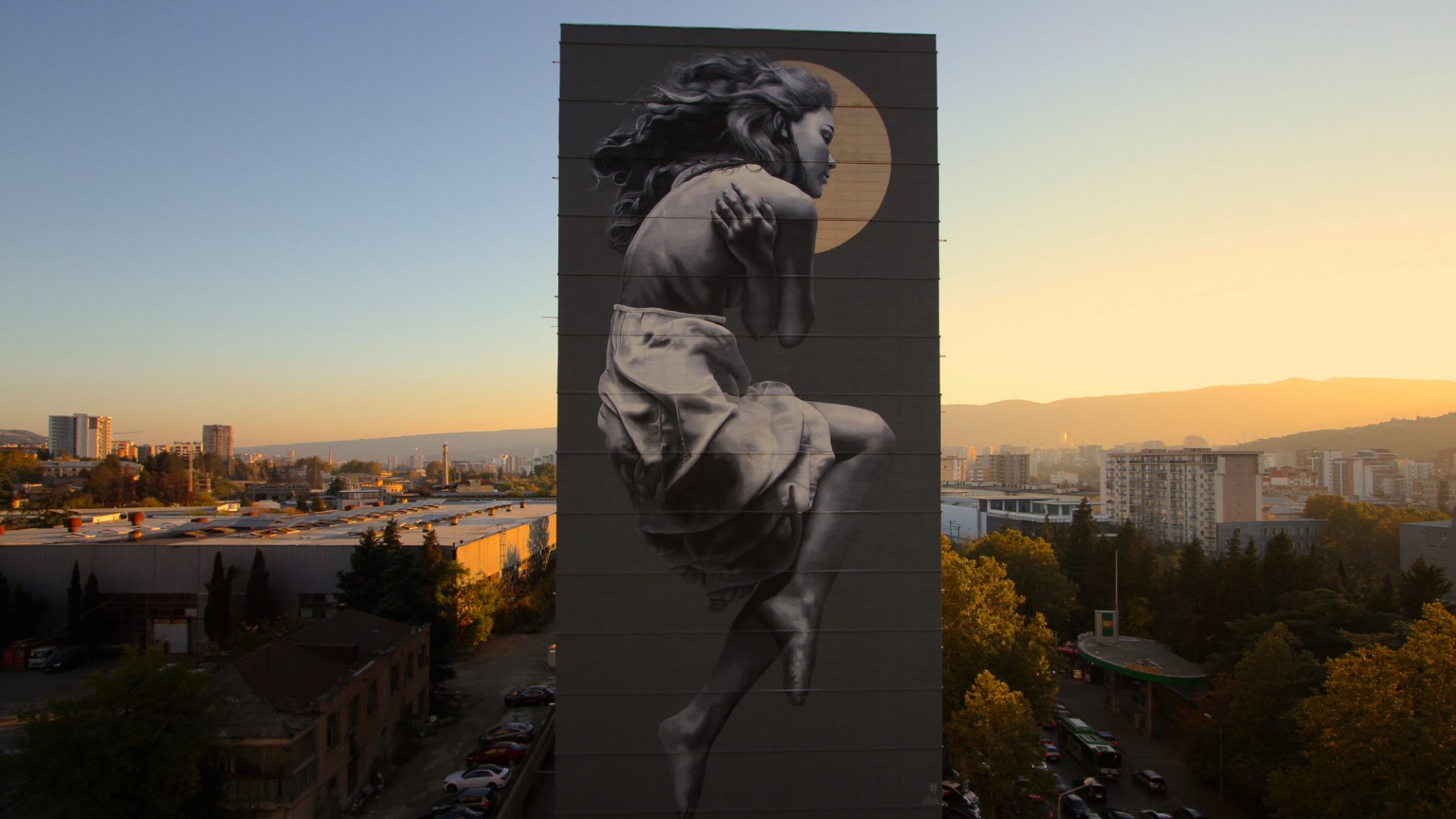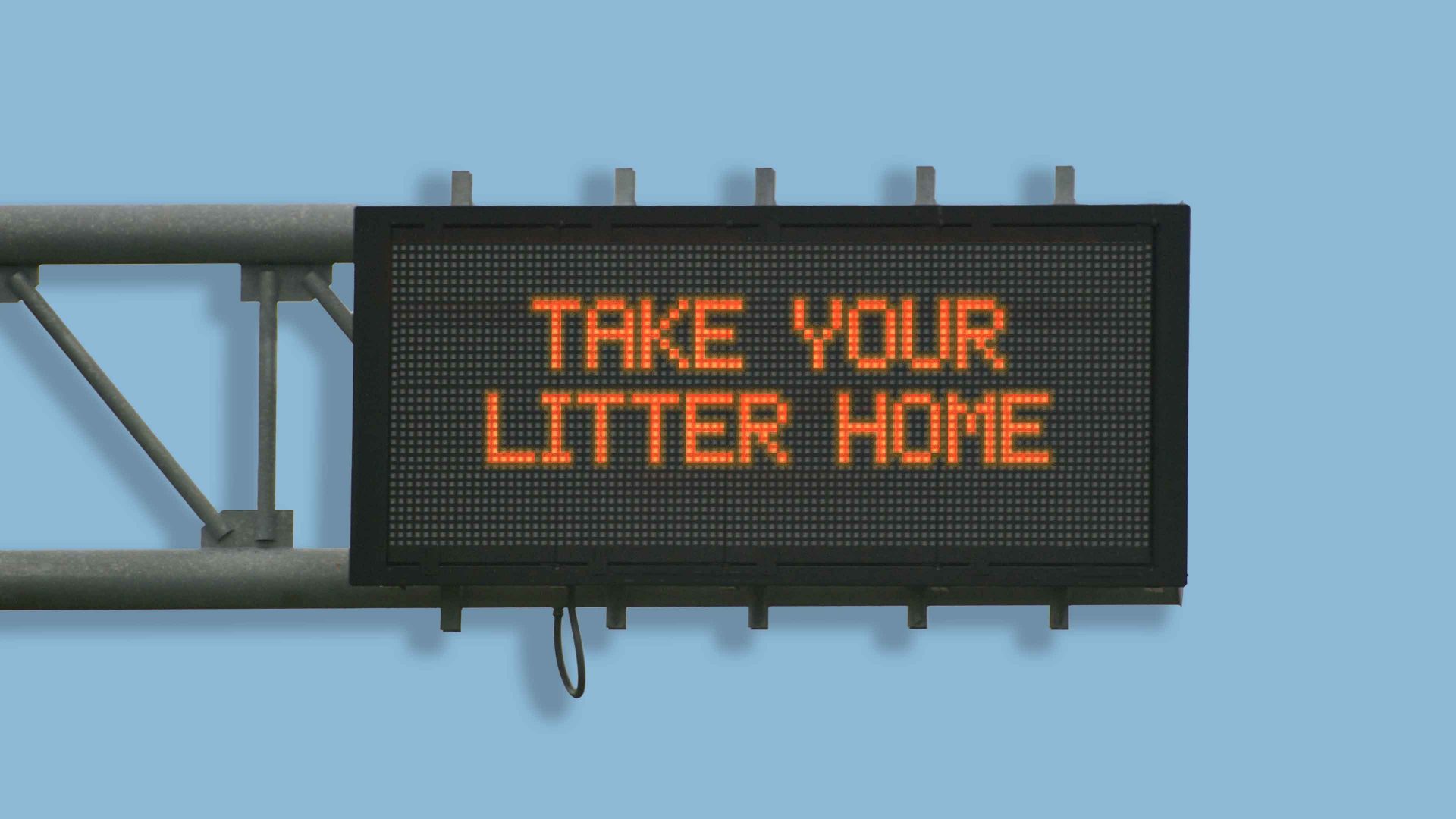The world has been watching the streets of Tbilisi in recent days; the footage of tens of thousands who gathered in Georgia’s capital to protest what they see as an election coup by the ruling, pro-Russian Georgian Dream Party. But to really gauge feelings here, what you should be looking at are the city’s walls. These serve as both an expansive open-air gallery and a vivid political manifesto.
At a pivotal time for the nation’s aspirational path towards EU membership, murals of the Georgian, European Union, and Ukrainian flags are dotted across the city, alongside graffiti proclaiming “Georgia is Europe”, and messages condemning the Russian occupation of two separatist regions since the 2008 invasion. This is the work of ordinary people, carried out in a clandestine manner, a grassroots movement deeply engaged with politics. But this movement has intertwined with an existing mural project in the city to create in something that merges art and activism.
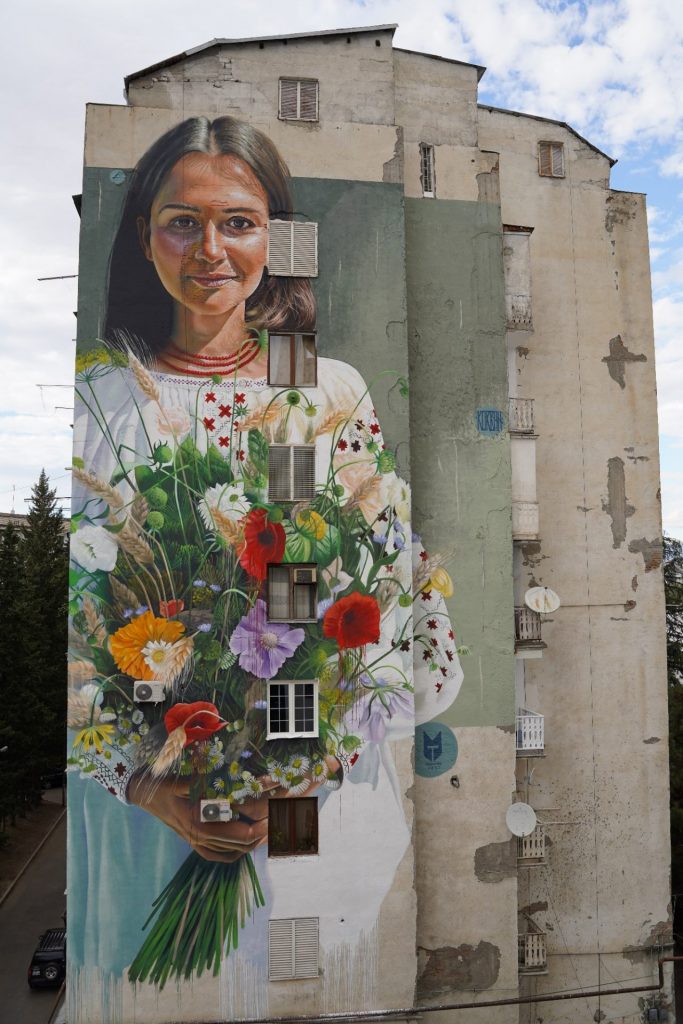
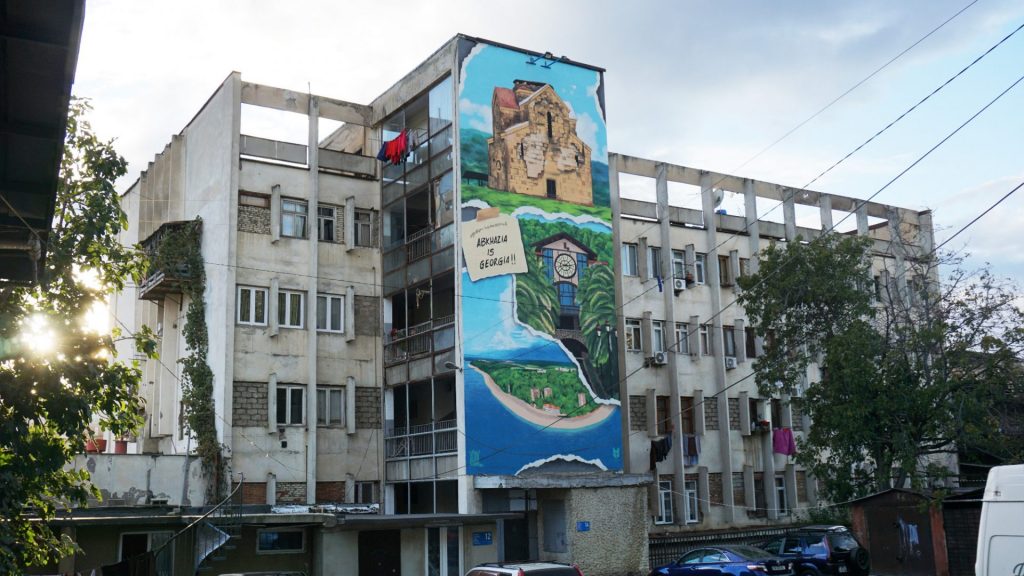
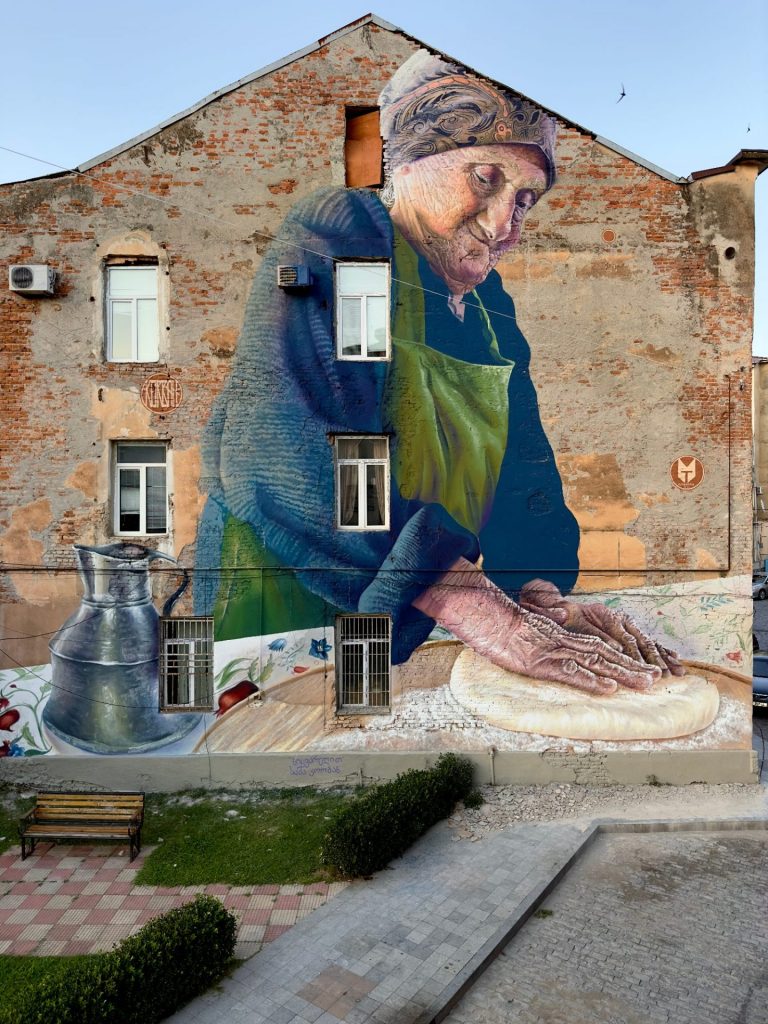
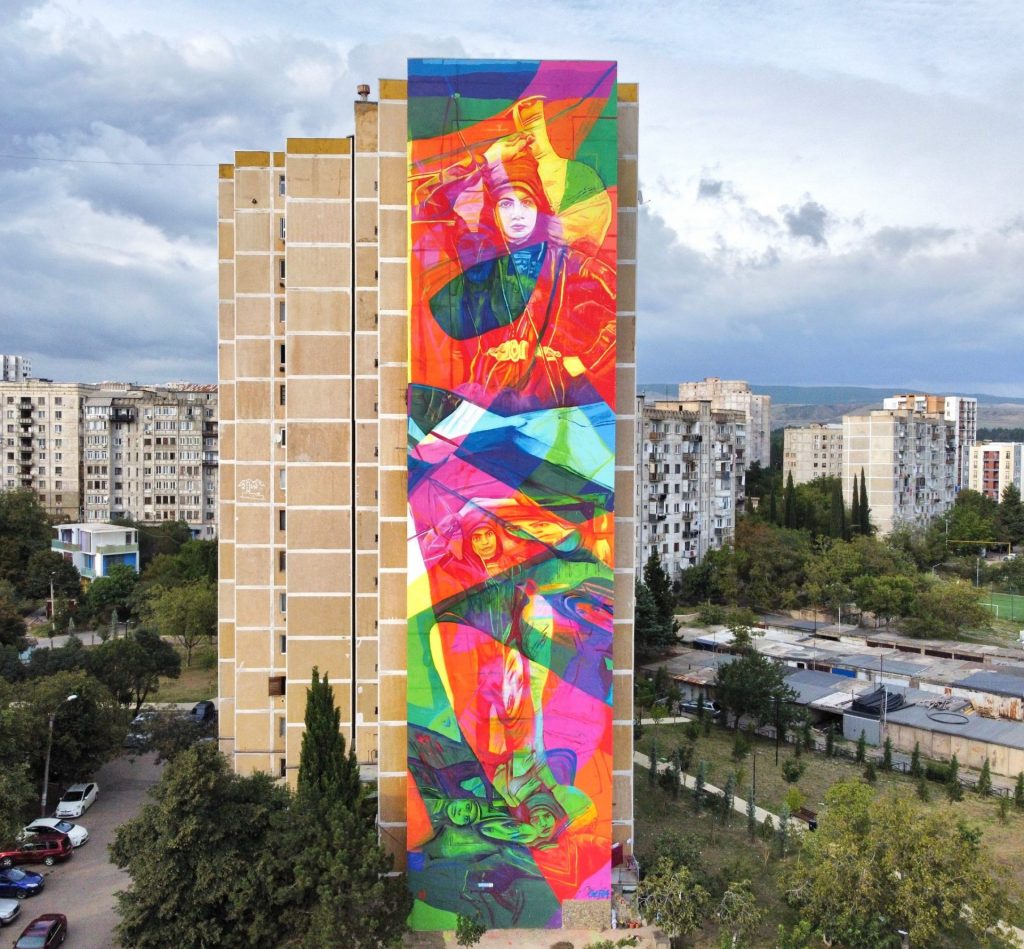
Established in 2019, the annual Tbilisi Mural Fest was conceived as a way of connecting local and international artists to redecorate a city whose urban landscape bears the scars of chaotic, unregulated construction. It “was rooted in a desire to promote contemporary art and transform urban spaces in Tbilisi into a canvas for creativity,” explains the artist and festival founder Besik Maziashvili. “We wanted to showcase diverse artistic expressions and bring colour, thought, and vibrancy to the city’s architecture,” Maziashvili explains.
So each September, citizens of Tbilisi and international tourists can watch the creation of new murals, interacting with the artists while they work and through organised workshops. Participating artists are encouraged to embed social and political messages into their work, a theme evident in the approximately 80 murals that have appeared across the city in recent years. In these febrile times, they seem more relevant than ever.
The disputed election results, denounced by the EU, the USA and international independent observers, will nevertheless be used by Georgian Dream as a validation of their pro-Kremlin stance. Relations between the countries have long been strained by the Russian occupation of around 20% of Georgian national territory.
Following independence from the Soviet Union in 1991, Georgia faced escalating conflict with two separatist regions, South Ossetia and Abkhazia, which intensified in 2008 when Russian forces invaded the neighbouring country in response to Tbilisi’s military efforts to reclaim these territories. Since then, thousands of Russian troops have been stationed in South Ossetia and Abkhazia, territories that have effectively become satellites of Moscow.
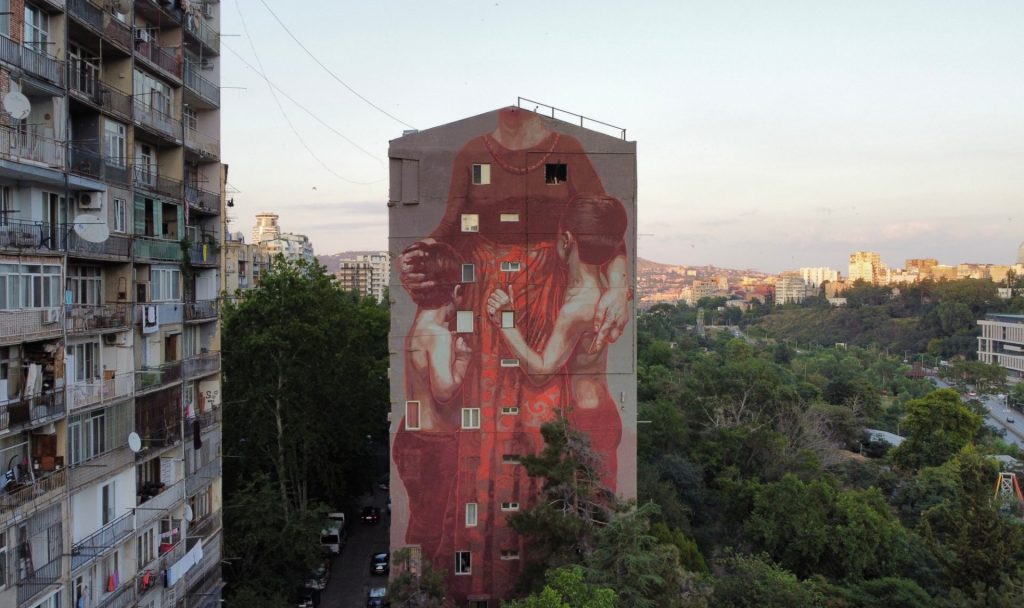
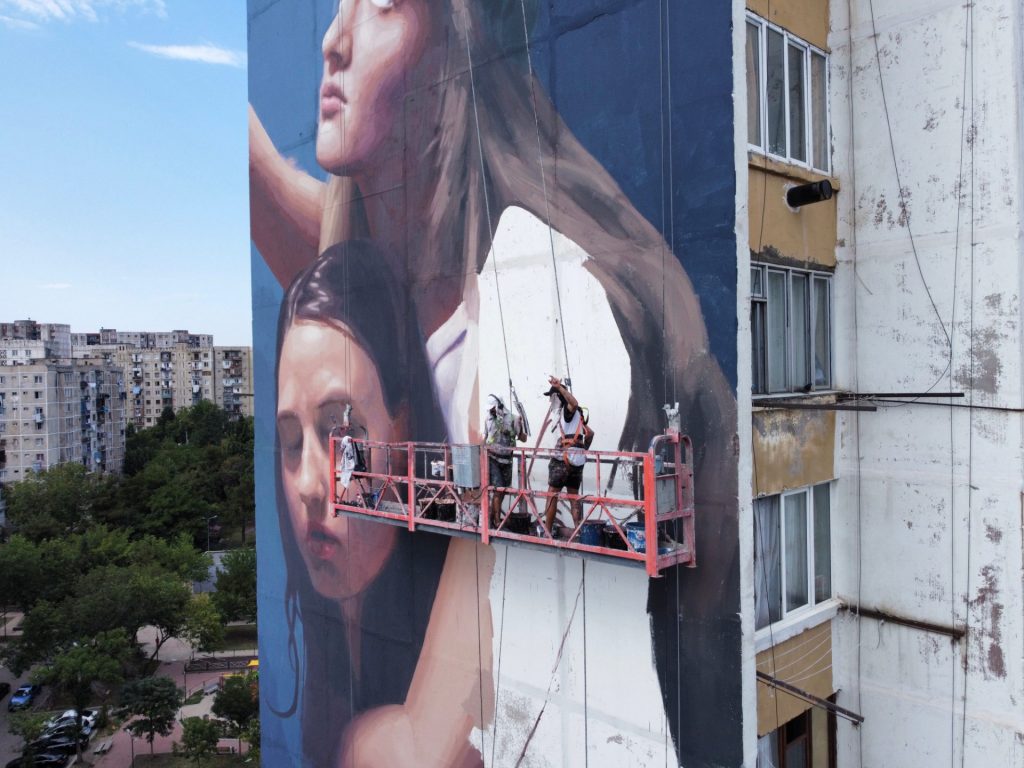
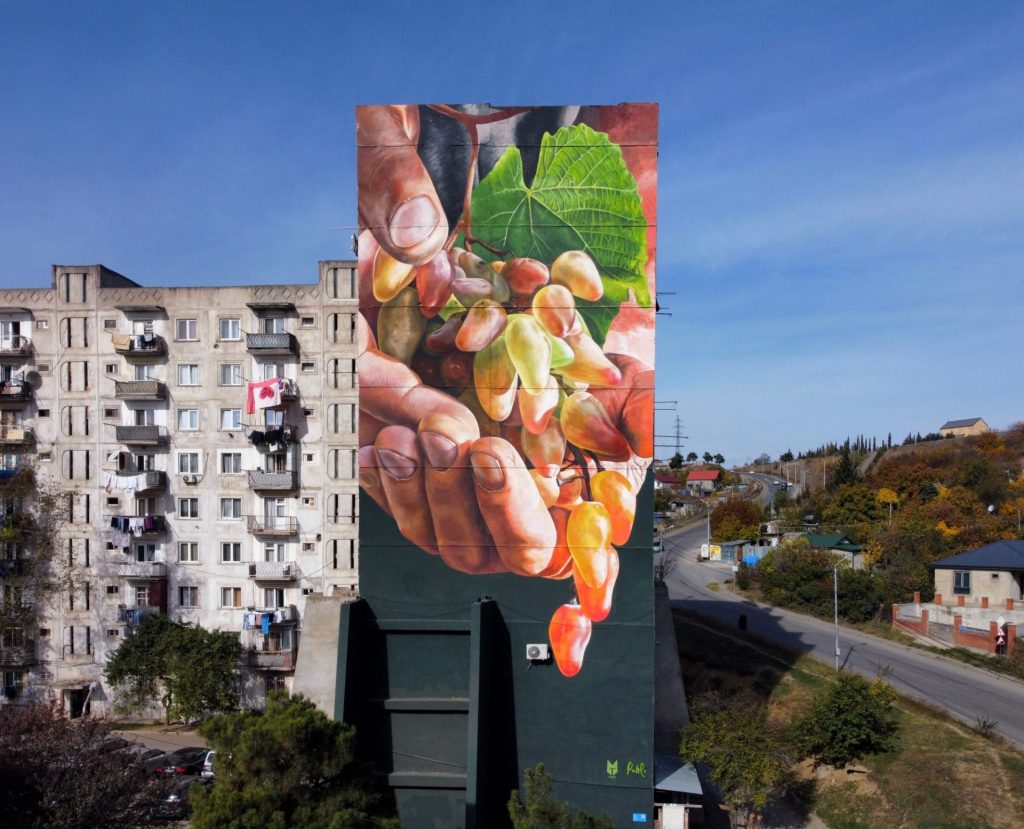
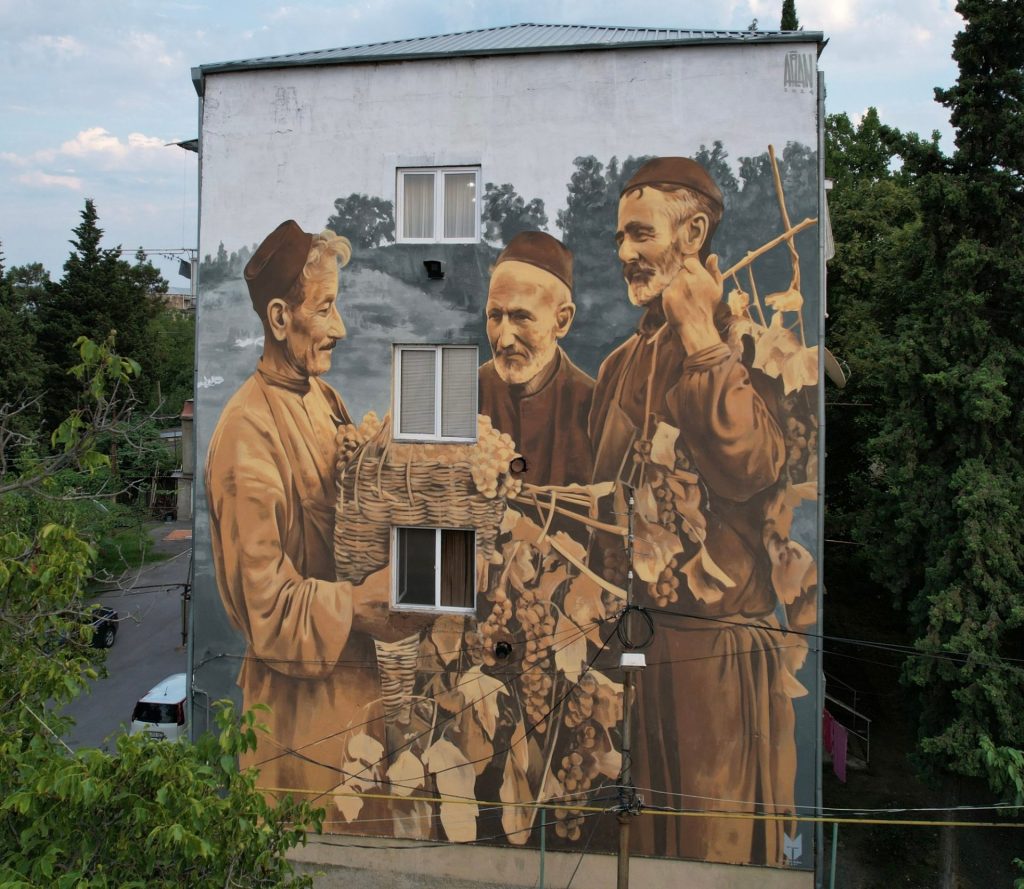
“The occupation of Georgia’s beautiful territories is an ongoing and deeply significant issue,” Maziashvili reflects, “that resonates deeply with our people.” One of the festival’s most symbolic works portrays scenes from Abkhazia, the region located in north-western Georgia along the Black Sea coast. A painted post-it-style message on the wall reading “Abkhazia is Georgia!” The mural decorates a large, grey, post-Soviet building that has housed dozens of refugees from Abkhazia since they fled the conflict between 1991 and 1993.
Not surprisingly, there is also work in support of Ukraine. One striking example is a mural painted in 2022 by Ukrainian artist Sasha Korban. The image depicts a Ukrainian woman in a traditional embroidered blouse, holding a large bouquet of wildflowers and wheat. It is displayed on a building facing the Russian embassy. Maziashvili explains that it was “a bold and deliberate choice”, meant to show “solidarity with Ukraine” and highlight “the shared struggles our nations face.”
According to Korban, the woman’s expression – staring resolutely forward with a barely visible smile – embodies the Ukrainian spirit, symbolising “strength, inner energy, freedom, and will, despite the terrible and cruel war.” Such a powerful mural facing Russian authorities daily “serves as a constant, strong message,” Maziashvili adds, “using art to make a visual impact that resonates with the values of freedom, resilience, and solidarity.” He says that for Georgians, supporting Ukraine “is a natural stance”, Maziashvili underlines, “as we understand the struggle for freedom and the value of self-determination.”
It is one more example of how Tbilisi Mural Fest seeks to address sensitive political and social issues, with Maziashvili emphasising the role of art as “a reflection of society, as it often mirrors public sentiment or significant events. If the art intersects with political issues, it is because the artists have chosen to engage with those topics, reflecting their own perspectives and experiences,” he says, while also offering them “the freedom to express their voices authentically. Our artists are free to express themselves.”
For the sake of Georgia, long may this continue.
Federico Baccini is a freelance journalist based in Brussels.

